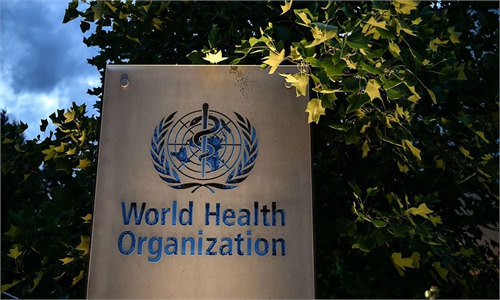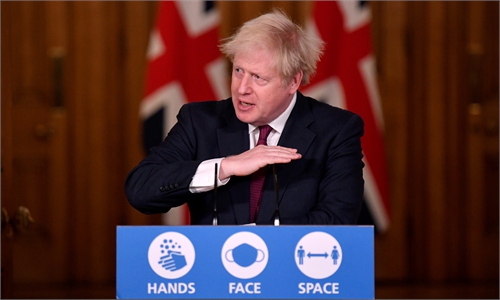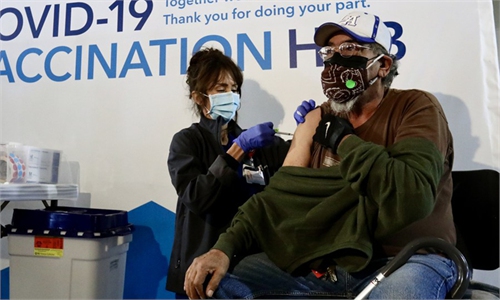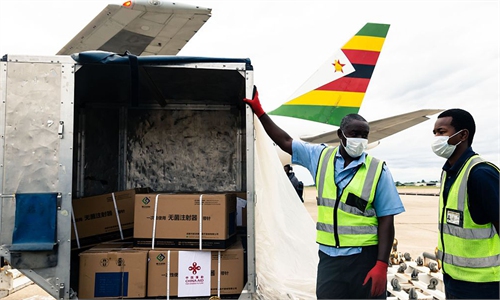Japan launched its coronavirus vaccination program on Wednesday, five months ahead of the Tokyo Olympics, as the World Health Organization reported a fall in new cases around the world.
The same day, Australia and New Zealand ended snap lockdowns after they successfully brought small outbreaks under control in just days - suggesting that despite their unpopularity, movement restrictions remain vital tools against the pandemic.
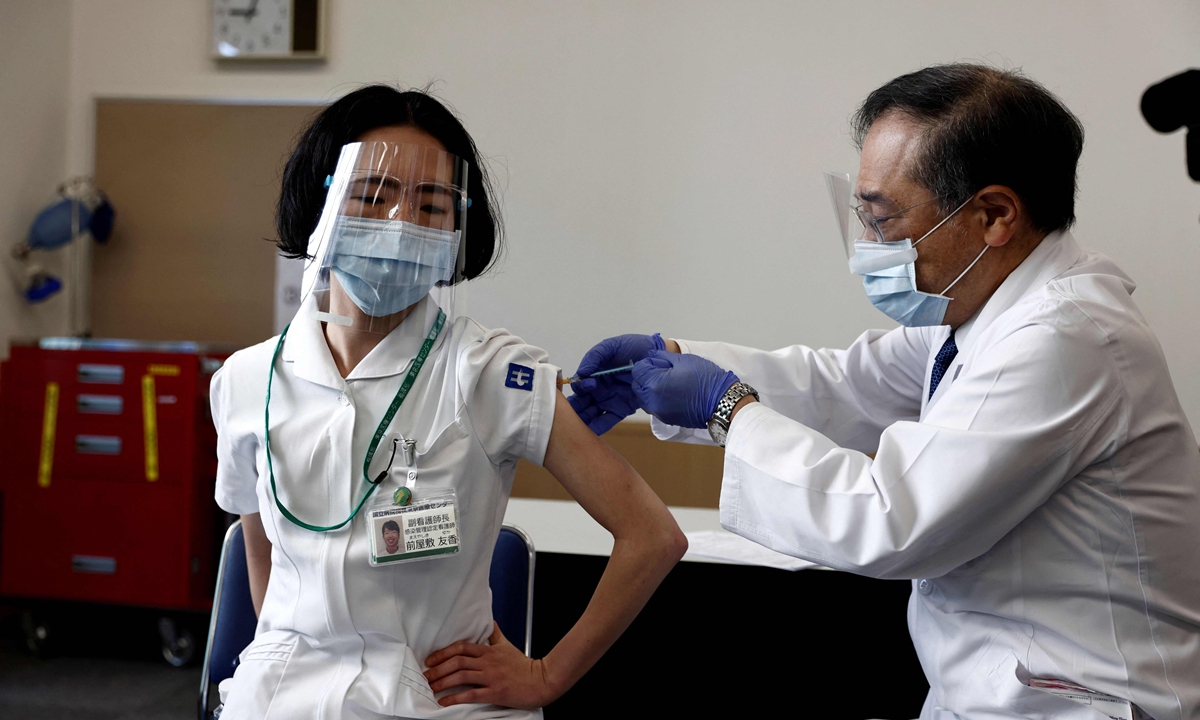
"Hopefully vaccinations... can change the situation here," nurse Rino Yoshida told national broadcaster NHK after she got one of the first shots.
Japan is battling a much more limited outbreak compared with hard-hit countries such as the US and Britain, but its response is being closely watched around the world as doubts swirl over the postponed Tokyo Olympics, due to start July 23.
Organizers have outlined measures they say will keep the Games safe even without requiring participants to be vaccinated or quarantined on arrival. But there are fears among the Japanese public and experts that the precautions may not be enough for a global event, even as the WHO on Tuesday reported a slowing of the pandemic.
New infections worldwide fell by 16 percent last week, while the number of new deaths also dropped 10 percent week-on-week, based on figures up to Sunday. "The fire is not out, but we have reduced its size," WHO director general Tedros Adhanom Ghebreyesus said on Monday.
With infections topping 109 million and more than 2.4 million deaths, the pandemic has devastated the global economy, and populations are growing increasingly frustrated with financially painful restrictions that authorities and experts say are necessary to fight the virus.
Among the countries that have successfully deployed such measures is Australia, where stay-at-home measures for six million people in Victoria state were to be lifted late Wednesday after a snap five-day lockdown brought an outbreak under control.
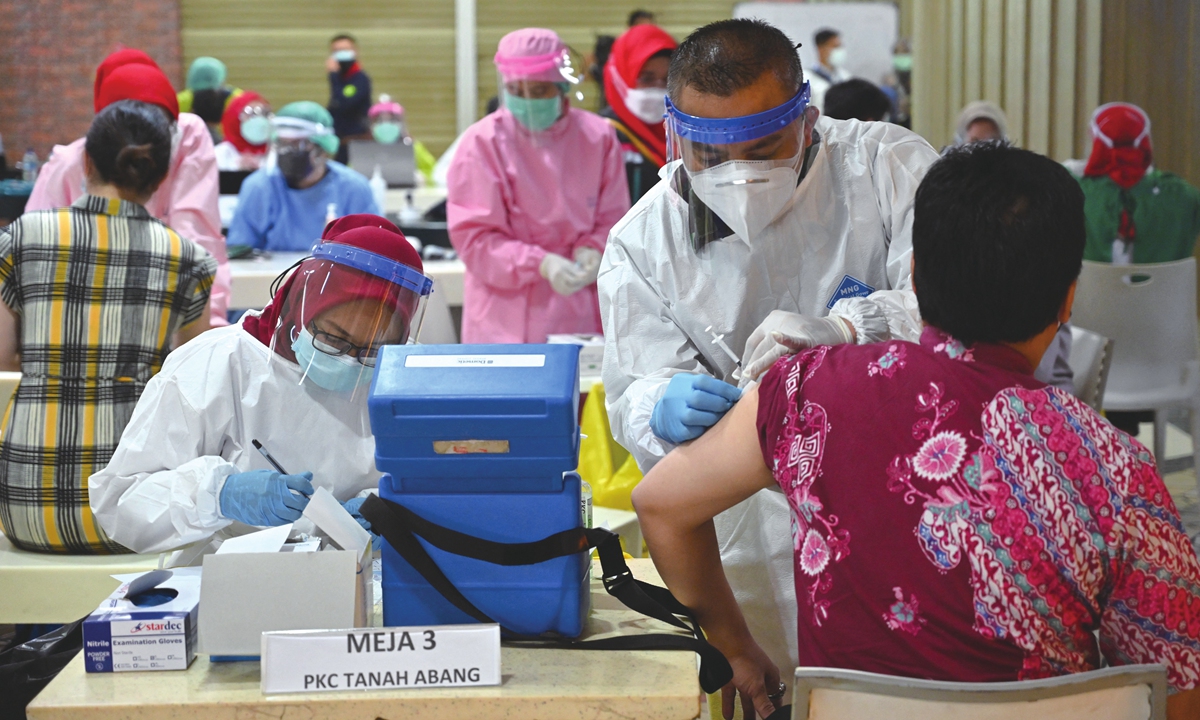
Neighboring New Zealand, widely praised for its COVID-19 strategy, also ended a snap lockdown it had imposed from Monday in its largest city Auckland after three community cases emerged. These measures sharply contrast with Europe and tightening them has often been politically difficult.
The EU will launch a program to produce vaccines against future strains.
The same day, Australia and New Zealand ended snap lockdowns after they successfully brought small outbreaks under control in just days - suggesting that despite their unpopularity, movement restrictions remain vital tools against the pandemic.

A medical worker receives a dose of the COVID-19 vaccine as the country launches its inoculation campaign at the Tokyo Medical Center in Tokyo on February 17, 2021. Photo: VCG
Japan kicked off its inoculation drive at a Tokyo hospital, with a plan to initially give Pfizer-BioNTech shots to 40,000 healthcare workers."Hopefully vaccinations... can change the situation here," nurse Rino Yoshida told national broadcaster NHK after she got one of the first shots.
Japan is battling a much more limited outbreak compared with hard-hit countries such as the US and Britain, but its response is being closely watched around the world as doubts swirl over the postponed Tokyo Olympics, due to start July 23.
Organizers have outlined measures they say will keep the Games safe even without requiring participants to be vaccinated or quarantined on arrival. But there are fears among the Japanese public and experts that the precautions may not be enough for a global event, even as the WHO on Tuesday reported a slowing of the pandemic.
New infections worldwide fell by 16 percent last week, while the number of new deaths also dropped 10 percent week-on-week, based on figures up to Sunday. "The fire is not out, but we have reduced its size," WHO director general Tedros Adhanom Ghebreyesus said on Monday.
With infections topping 109 million and more than 2.4 million deaths, the pandemic has devastated the global economy, and populations are growing increasingly frustrated with financially painful restrictions that authorities and experts say are necessary to fight the virus.
Among the countries that have successfully deployed such measures is Australia, where stay-at-home measures for six million people in Victoria state were to be lifted late Wednesday after a snap five-day lockdown brought an outbreak under control.

Vendors receive vaccines for COVID-19 coronavirus at the Tanah Abang textile market in Jakarta, Indonesia, on Wednesday. The Indonesian government starts the second round of mass vaccination against coronavirus targeting priority groups other than medical workers on Wednesday. The second round of vaccination targets 38.5 million people. Photo: AFP
"If we had been open throughout this outbreak... total case numbers would be much, much higher and it is a certainty that I would not be reporting zero cases today," said Victoria Premier Daniel Andrews.Neighboring New Zealand, widely praised for its COVID-19 strategy, also ended a snap lockdown it had imposed from Monday in its largest city Auckland after three community cases emerged. These measures sharply contrast with Europe and tightening them has often been politically difficult.
The EU will launch a program to produce vaccines against future strains.
